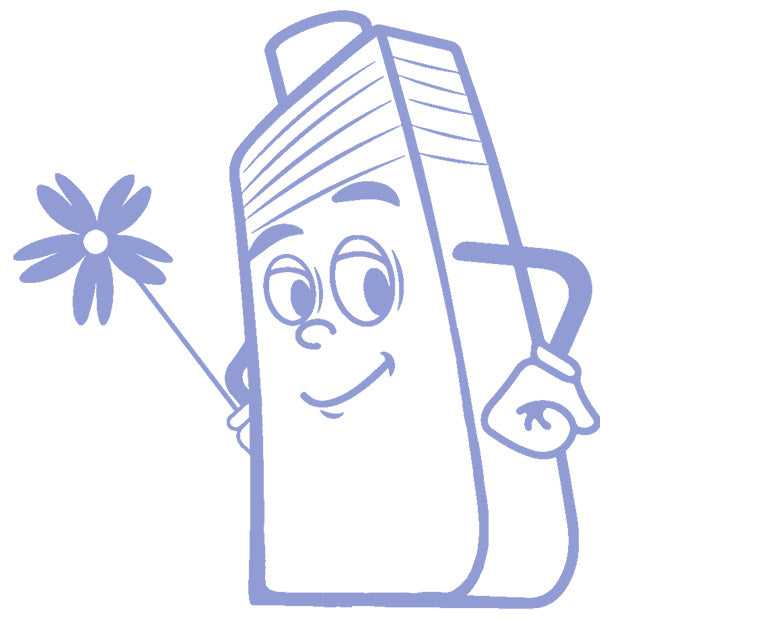Index
Can Stress Cause Hair Loss?
So, does stress cause hair loss? In short, yes. Significant emotional stress can stress-related hair loss. Some examples of significant emotional stress include:
- A breakup
- Job loss
- Loss of a loved one
- Divorce
- Financial insecurity
- Pressure from school or work
- External factors, like a disaster or pandemic
Other factors that could contribute to stress-related hair loss include a major illness, surgery, accident, or even childbirth.
So how exactly can stress cause hair loss? Before we can get into hair loss due to stress, we need to talk about the hair cycle. Every scalp has around 100,000 hair follicles, each growing its own hair. Hair follicles grow this hair in a cycle that includes a growth phase, a resting phase, and a shedding phase. Each hair follicle is at a different point of its hair cycle, which is why it’s normal to lose up to 30-150 strands of hair per day. But the majority of the hair follicles are in the growth cycle.
When confronted with a major stressor, the body responds by pushing more strands than usual from the growth phase to the resting phase. Normally, around 90 percent of your hair strands are in the growth phase and 10 percent are in the resting phase. But when you experience stress-related hair loss, more than 20 percent of the hair follicles enter the resting phase at the same time. For some people, 50 percent of hair follicles could enter the resting phase. A few months later, those same strands will move into the shedding phase and fall out. The shedding can last for several months.
As for why this happens, scientists don’t exactly know. It’s thought that high levels of stress can affect the hair follicle’s ability to function. When encountering a high-stress situation, the body releases hormones called cortisol and adrenaline as part of our fight-or-flight reaction. These hormones reduce blood flow to the skin and reroute nutrients to our vital organs. Since your hair isn’t considered vital, your hair follicles may experience a temporary drop in nutrients that could eventually result in stress-related hair loss.
Cortisol also degrades certain skin substances needed for regular hair growth like proteoglycan, which can further contribute to stress-related hair loss.
Other Types of Stress-Related Hair Loss
There are two other causes of stress and hair loss, though they are less common:

1. Trichotillomania
Also known as hair-pulling disorder, trichotillomania is a disorder that involves pulling out one’s hair. High stress levels can worsen trichotillomania. Treatment options include therapy.
2. Alopecia Areata
Alopecia areata is a form of hair loss where the body’s immune system attacks the hair follicles, causing hair loss. It’s thought that stress can contribute to alopecia areata. Alopecia areata is more difficult to treat since it is an autoimmune disorder. Unlike telogen effluvium, which appears as diffuse shedding, alopecia areata presents as round bald spots.
However, telogen effluvium is usually the culprit behind hair loss due to stress. If you’re experiencing hair loss and stress, talk to your doctor to find out the root cause.
What Are the Signs of Hair Loss Due to Stress?
Stress-related hair loss from telogen effluvium is usually abrupt, diffuse, and temporary. Most people with this kind of hair loss caused by stress will notice sudden shedding two or three months after the stressful event. The shedding is diffuse, meaning that hair is lost all over rather than from particular spots (unlike alopecia areata and trichotillomania, which tend to produce hair loss in concentrated areas). If you are experiencing this type of hair loss due to stress, you may notice a wider hair part or a smaller ponytail.
The good news? This form of stress-related hair loss is usually temporary. Once the stressor is removed, hair will usually regrow on its own. However, the hair regrowth process is slow. It can take up to a year for hair regrowth after stress-related hair loss. But I have some tips on how to regain hair loss from stress, so you can get back to your regular hair density more easily. Keep reading to learn more about how to regain hair loss from stress.
How to Regain Hair Loss from Stress: 8 Effective Methods
1. Eat a healthy diet

Eating a proper diet is healthy for your body and your hair. Make sure that you’re eating plenty of fruits, vegetables, whole grains, healthy fats, and lean proteins to recover from stress-related hair loss.
Protein is particularly important when it comes to learning how to regain hair loss from stress. Hair is made from protein, so make sure to incorporate plenty of protein into your diet. Healthy protein sources include poultry (like chicken and turkey), quinoa, eggs, fish, and soy products like tofu.
2. Take a Supplement
If you want to know how to regain hair loss from stress, definitely don’t skip eating a healthy diet full of nutrient-dense foods as mentioned above. Certain types of vitamins, such as vitamins A, B6, B12, and C, can help you maintain a normal functioning immune system.
Hairlust Hair Formula Gummies for Women contains 14 vitamins and minerals, including biotin and zinc, contributing to the maintenance of normal hair. These gummies are ideal for anyone who wants to nourish their hair with a high dose of biotin combined with other vitamins and minerals in a single, easy-to-take supplement.
And since they’re in a delicious gummy formulation, it’s easy to remember to take them. Hairlust has supplements for both men and women, in tablet and gummy form.
3. Try a Topical Treatment

While a hair growth supplement promotes regular hair growth from within, a topical treatment encourages hair growth from the outside. Using both helps to regrow hair after stress-related hair loss.
I love Grow Perfect™ Hair Growth Serum, which is formulated with clinically proven ingredients like caffeine and AnaGain to improve scalp health and encourage healthy hair growth. Plus, it has a fast-absorbing formula that doesn’t leave hair looking greasy. For best results, use daily.
4. Get Enough Sleep
Stress can also disrupt regular sleep patterns, which makes the situation worse. Try to get seven to nine hours of sleep per night.
If you’re struggling to get enough sleep, make sure you’re practicing good sleep hygiene. Go to bed and wake up at the same time (even on the weekends). Follow the same evening routine to help you wind down before bed (one of the stress management techniques below could be a great addition!). Sleep in a cool, dark room and avoid screens at least an hour before bed.
For a comfortable sleep, try silky smooth bamboo pillowcases and duvet covers that have temperature regulating and antibacterial properties.
5. Manage Stress
If you want to learn how to regain hair loss from stress, you’ll also need to find some stress management techniques that work for you. Why? Because regrowth after hair loss from stress can only occur after the stress is removed. Stress management techniques you can try include:
- Yoga – Sign up for a yoga class or follow along with a YouTube video. There are many types of yoga, so make sure to explore your options before writing off this excellent stress-relieving tool.
- Meditation – Meditation is a great low-cost way to reduce stress. Sit in a comfortable position, close your eyes, and try to focus on your breath. Every time your thoughts wander away, gently bring them back to your breath. Start with 5 minutes of meditation per day and gradually work your way to longer sessions. If you find meditation difficult, try a guided meditation. Many free guided meditations can be found on YouTube.
- Deep Breathing Exercises – Deep breathing exercises can also help you to lower your stress levels and improve focus. Try out different deep breathing exercises like box breathing, alternate nostril breathing, and 4-7-8 breathing. YouTube is also a great resource for this!
- Journaling – If you find your mind racing, journaling can be a great way to quiet those thoughts. Whether you use traditional paper and pencil or type up your thoughts on the computer, journaling is another great way to reduce stress.
- Spending Time Outdoors – Believe it or not, spending time in nature is an effective stress reduction technique. There’s just something so soothing about getting some fresh air! Bonus points if you exercise or meditate outdoors.
- Counseling or Therapy – Finally, seeking out the professional can make a world of difference for anyone experiencing a high-stress situation. A licensed therapist or mental health counselor can help you to heal from traumas and teach you effective stress reduction techniques to help with stress-related hair loss.
Everyone is different, so try a few techniques out and see which works best for you!
6. Boost Root Volume
While your hair follicles are recovering from hair loss due to stress, you can also use certain styling products to create the appearance of fuller hair. One product is Grow Perfect™ Thickening Spray. This leave-in scalp treatment delivers instant volume to revive flat and dull hair. Plus, it’s formulated with ingredients like organic rosemary oil and RootBioTec™, that encourage scalp health and regular hair growth.
7. Massage Your Scalp
Another way to promote scalp health is through scalp massage. Scalp Delight™ Detox Scrub utilises rice powder to gently buff away dead skin, excess sebum, and product buildup to leave the scalp clean and refreshed. For best results, use together with the Scalp Delight™ Scalp Massage Brush.
8. Use a Hair Growth Shampoo

Another way to regrow hair after hair loss due to stress is to use shampoo for hair loss. My recommendation is Grow Perfect™ Shampoo, which is a multi-approach hair loss shampoo powered by Anagain™ and organic rosemary oil developed specifically for thinning and fine hair. For best results, use it together with Grow Perfect™ Conditioner to keep your existing hair strands healthy while boosting new hair growth.
Is There a Way to Prevent Hair Loss Caused by Stress?
Now that we’ve explored the link between stress and hair loss and how to regain hair loss from stress, you’re probably wondering how to prevent stress-related hair loss.
The most important thing is to learn effective stress management techniques to help you to reduce your stress levels. Proper stress management can help reduce some of the strain and prevent hair loss due to stress.
Since it’s thought that stress may affect the hair follicle’s ability to function properly, another way to prevent hair loss caused by stress could be to use products that support a healthy scalp such as:
I hoped this article showed you how to regain hair loss from stress.
Your Journey to Hair Recovery Starts Today
Remember, experiencing hair loss from stress doesn't mean you're powerless. The treatments and strategies outlined above have helped countless individuals restore their hair's health and thickness. The key is to approach recovery holistically – addressing both the underlying stress and providing your hair with the nutrients and care it needs to thrive.
Most importantly, be patient with yourself and the process. Stress-related hair loss typically shows improvement within 3-6 months of implementing consistent care routines and stress management techniques. During this time, focus on gentle hair care practices and avoid harsh treatments that could further damage vulnerable strands.
Consider keeping a hair journal to track your progress, noting changes in hair texture, growth, and overall scalp health. This can help you identify which treatments work best for your specific situation and provide motivation during the recovery process.
If you're concerned about persistent hair loss or if your symptoms worsen, don't hesitate to consult with a dermatologist or trichologist. Professional guidance can help rule out other underlying conditions and ensure you're on the right path to healthy hair restoration.




































































